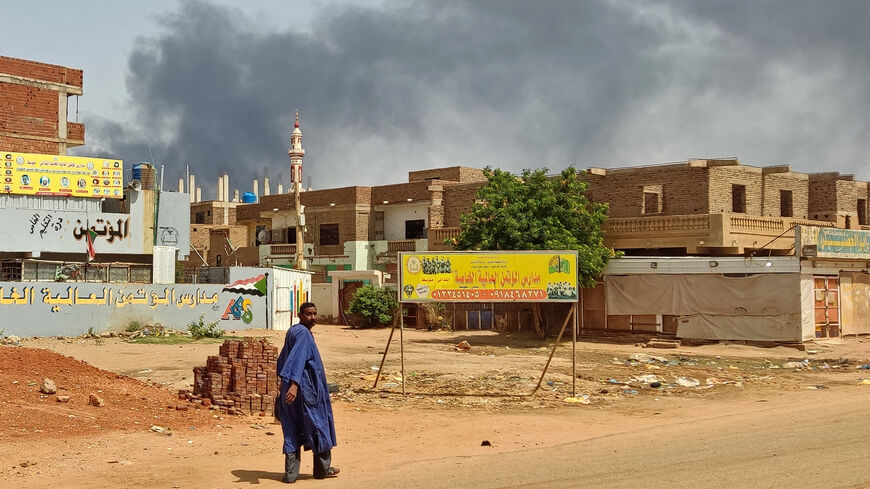The war in Sudan continues to rage as it enters its 100th day with no prospects of any near solution to the conflict that has devastated the country.
The conflict in Sudan erupted in the capital Khartoum on April 15 between the Sudanese Armed Forces and the paramilitary Rapid Support Forces (RSF) vying for power after years of instability that followed the fall of longtime dictator Omar al-Bashir in April 2019. The fighting has since spread to other areas of the country.
More than 3,000 people have been killed since, according to the Sudanese Health Ministry. UNICEF said at least 435 children had been killed and 2,025 injured.
Another 14 million children are in need of humanitarian support, according to the agency, and over half of Sudan's 48 million people need humanitarian aid to survive.
More than 2.6 million have been internally displaced while at least 730,000 people have fled to neighboring countries, according to July data from the United Nations refugee agency, UNHCR.
In addition to the almost daily strikes, civilians have been subjected to human rights violations, including sexual assault and summary executions, as well as other forms of violence.
In mid-July, a mass grave where at least 87 bodies of ethnic Masalit were buried was discovered in Sudan’s West Darfur state. The UN human rights office, OHCHR, said it had credible information that those buried were executed by the RSF and its allied forces in the region. The RSF was also accused of looting homes and burning down villages in the region.
Tensions between Arab and non-Arab communities in Darfur are deep-rooted. The RSF, which is estimated to include nearly 70,000 fighters according to the International Crisis Group, emerged in 2013 from the notorious Janjaweed militia that Bashir deployed to crush a non-Arab rebellion in Darfur in the early 2000s. The militia was accused of atrocities including war crimes.
On Saturday, at least 16 civilians were killed in rocket fire at a residential neighborhood in the city of Nyala, the capital of South Darfur state.
Separately, nine people, including four military personnel were killed on Sunday when a civilian plane crashed in Port Sudan airport. The army said the crash was caused by a technical failure.
As fears grew that the Sudanese conflict could destabilize the already volatile region, regional and international actors have activated their diplomatic efforts to end the war.
In May, Saudi Arabia and Washington brokered talks between the rival Sudanese parties in Jeddah in a bid to resolve the conflict. But the talks soon broke down in June as the army accused the RSF of lack of commitment. Reuters reported in mid-July that the Jeddah talks might resume soon after representatives from the two sides arrived in the Saudi city. However, Washington and Riyadh have yet to confirm the report.
Egypt has also launched its own peace efforts. On July 13, the leaders of six countries neighboring Sudan — Ethiopia, South Sudan, Chad, Eritrea, the Central African Republic and Libya — convened in Cairo to discuss a long-term cease-fire agreement, the establishment of safe humanitarian corridors and a dialogue framework that includes all of Sudan's political forces.
Meanwhile, numerous cease-fires have collapsed, and the repeated failures to halt the fighting are leaving civilians fending for themselves as the violent battles continue unabated.








